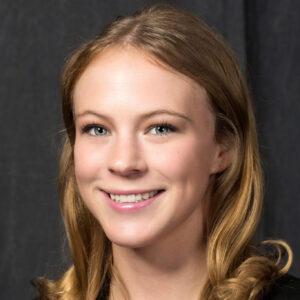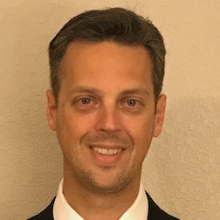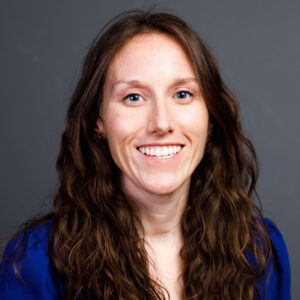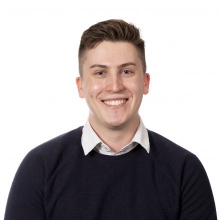To maintain up with the aggressive world market and complicated Twenty first-century points, American engineers want as a lot help as potential to beat the challenges they face.
The Achievement Rewards for School Scientists, or ARCS, Basis understands the subsequent era of students should obtain correct help to advance science and know-how in the US. The muse accomplishes this by offering monetary awards to academically excellent college students in science, engineering and medical analysis.
This yr, a document 21 Arizona State College college students have been named ARCS Students, 13 of whom are pursuing degress in ASU’s Ira A. Fulton Colleges of Engineering.
Since 1975, the Phoenix Chapter of ARCS has supplied greater than $6.6 million in help to 1,052 graduate college students attending Arizona state colleges. Recipients obtain $8,500 administered by the ASU Graduate School that can be utilized for no matter college students have to help their analysis. This yr’s students are conducting analysis in a variety of fields, together with clear water entry, knowledge science, cybersecurity, mind well being and evaluating illness danger. Every of those college students has totally different particular person objectives and obstacles to beat, and the ARCS Scholarship helps them rise to the problem.
Nice expectations
“I used to be raised on the poverty line by immigrant mother and father from weak rural communities with out entry to scrub water, plumbing and schooling,” Aide Robles says. “I grew up listening to tales of their struggles, and my household’s hardships grew to become the most important driver of my option to pursue an undergraduate diploma in civil engineering with a give attention to hydrology. I used to be motivated to make sure all individuals have entry to scrub water.”
After graduating from Northern Arizona College with a double main in Spanish and civil engineering, Robles selected to pursue masters and doctoral levels in environmental engineering at ASU after assembly her tutorial advisor, Anca G. Delgado, an assistant professor of civil and environmental engineering within the Faculty of Sustainable Engineering and the Constructed Surroundings, a part of the Fulton Colleges, and a researcher within the Swette Middle for Environmental Biotechnology in ASU’s Biodesign Institute.
Robles is utilizing the ARCS Scholarship to help her work on user-inspired know-how for bioremediation, the method of decontaminating a polluted website by introducing microorganisms. Her analysis focuses on the bioremediation of chlorinated contaminants in groundwater and soil.
By growing and optimizing a novel bioremediation know-how that employs the metabolic course of referred to as chain elongation, Robles will help each business and authorities entities to eradicate poisonous contaminants from groundwater and the soil subsurface.
Sharing machine studying information
Tyler Sypherd, electrical engineering
ARCS Scholar Tyler Sypherd used a portion of his funding to current findings from his analysis on machine studying —detailed in his paper, “Being Correctly Improper,” — to an viewers of consultants from all over the world on the 2022 Worldwide Convention on Machine Studying.
After incomes his undergraduate diploma in electrical engineering at ASU, Sypherd grew to become interested by exploring the basic limits of information and studying.
“I used to be motivated to pursue a PhD in electrical engineering at ASU to study to mannequin essentially the most environment friendly compression and communication system that we all know of: the human mind,” Sypherd says. “My analysis is within the subject of machine studying the place the purpose is to imbue algorithms with intelligence and the flexibility to study from knowledge.”
Sypherd has made intensive use of ASU’s analysis computing sources on this pursuit. His purpose is to enhance the robustness of machine studying algorithms for a variety of classification issues with realizable sensible utility. The outcomes he has obtained to date recommend that the metrics these algorithms use can be simpler in the event that they make use of metrics from the sector of data principle.
Sypherd hopes his analysis will present knowledge scientists and machine studying engineers a brand new instrument to form the educational course of for machine studying algorithms.
Consumer-friendly cybersecurity

Danielle Jacobs, omputer science
Danielle Jacobs is utilizing her ARCS Scholarship to subsidize the time she spends growing a user-friendly instrument to evaluate a client’s danger of cyber hurt.
Because the variety of good gadgets in our lives will increase, from good vehicles to good fridges, it turns into more and more troublesome for the typical particular person to handle their cyber safety. Earlier than returning to high school to pursue a doctoral diploma in pc science within the Faculty of Computing and Augmented Intelligence, Jacobs labored within the cybersecurity subject and observed simply what number of sources industries dedicate to their very own safety in our on-line world.
“I spotted that within the business, they’ve acquired complete groups and a structured methodology to know what their danger is and mitigate it,” Jacobs says. “If common shoppers does attempt to analysis it themselves, there’s a lot info on the market that it’s arduous to make heads or tails of it and work out what they should do. So, one of many issues I’m attempting to do in my analysis is develop a composite index.”
This composite index will come within the type of a survey, quizzing customers about their utilization of good gadgets and evaluating potential danger areas. Outcomes will consider the extent of those dangers and share methods the shoppers can shield themselves.
Leveraging connections

Jeffrey Blanzy, biomedical engineering
Jeffrey Blanzy, a biomedical engineering graduate pupil within the Faculty of Organic and Well being Techniques Engineering, cites the connections he has made to the Barrow Neurovascular Institute, or BNI, as essentially the most influential aspect of his work as an ARCS Scholar, though the monetary help has additionally been vital to advancing his analysis.
The ARCS Basis maintains a relationship with researchers on the BNI, which enabled Blanzy to satisfy neurosurgeon Robert Spetzler.
“Early in my engineering profession, a colleague of mine misplaced his spouse to a ruptured neurovascular aneurysm. That reminiscence was very impactful and personalised my analysis,” Blanzy says. “Moreover, I’m impressed by the analysis of Dr. Spetzler at Barrow Neurovascular Institute. Specifically, his work with skull-based tumors.”
Blanzy’s analysis focuses on the synthesis of temperature-responsive hydrogels for the remedy of mind aneurysms. Though it’s outdoors the scope of his present analysis, he additionally believes this gel can be utilized to launch chemotherapy medicine immediately right into a tumor, minimizing the danger of open mind surgical procedure.
“Whereas we’re far-off from medical trials,” Blanzy says, “solely by means of the help of ASU, BNI, and ARCS may we’ve developed this distinctive biomaterial and perceive its use and utility for remedies of aneurysms and arteriovenous malformations within the mind.”
Transdisciplinary method to analysis

Melanie Newell, organic design
Melanie Newell is utilizing her ARCS Scholarship to fund bigger grant proposals for what she hopes might be trailblazing analysis in epigenetics, the research of how habits and surroundings can have an effect on the best way genes categorical themselves.
Newell was drawn to ASU’s organic design doctoral program due to its transdisciplinary methodology, which has allowed her to merge her pursuits in epigenetics and conservation biology, the topic of her undergraduate diploma. She selected to return to high school after spending 10 years instructing STEM topics at colleges in Phoenix to pursue her rising curiosity in scholarly analysis.
Newell found the best convergence of her pursuits after assembly with Rolf Halden, director of the Middle for Environmental Well being Engineering in ASU’s Biodesign Institute and a professor of civil and environmental engineering within the Ira A. Fulton Faculty for Sustainable Engineering and the Constructed Surroundings, a part of the Fulton Colleges.
The purpose of Newell’s analysis is to take inhabitants knowledge derived from wastewater evaluation and examine the epigenetic adjustments in a bunch of individuals to confirm whether or not they’re in danger for sure illnesses. She is especially interested by neurodegenerative problems just like the Lou Gehrig, Alzheimer’s and Parkinson’s illnesses. This evaluation may result in early diagnoses for these in danger.
“Any such evaluation has by no means been executed,” Newell says. “Epigenetics has all the time been executed with people. It’s all the time been executed with very purified, fastidiously cultured samples from individuals.”
With the assistance of her advisors, Newell is keen to set a brand new customary for epigenetic analysis.
Meet the 2022 ASU Fulton Colleges ARCS Students
13 of the 21 ARCS students are college students within the Fulton Colleges. See the complete listing of ASU ARCS students on the ASU Graduate Faculty web site.
Edward Andert – pc engineering, Faculty of Computing and Augmented Intelligence
Jeffrey Blanzy – biomedical engineering, Faculty of Organic and Well being Techniques Engineering
Emily Briese – civil, environmental and sustainable engineering, Faculty of Sustainable Engineering and the Constructed Surroundings
Danielle Jacobs – pc science, Faculty of Computing and Augmented Intelligence
Tyler McCarthy – electrical engineering, Faculty of Electrical, Laptop and Vitality Engineering
Allison McMinn – electrical engineering, Faculty of Electrical, Laptop and Vitality Engineering
Melanie Newell – organic design, Faculty for Engineering of Matter, Transport and Vitality
William Parquette – electrical engineering, Faculty of Electrical, Laptop and Vitality Engineering
Sydney Parrish – chemical engineering, Faculty for Engineering of Matter, Transport and Vitality
David Quispe – supplies science and engineering, Faculty for Engineering of Matter, Transport and Vitality
Aide Robles – civil, environmental and sustainable engineering, Faculty of Sustainable Engineering and the Constructed Surroundings
Tyler Sypherd – electrical engineering, Faculty of Electrical, Laptop and Vitality Engineering
Elisabeth Thomas – chemical engineering, Faculty for Engineering of Matter, Transport and Vitality

